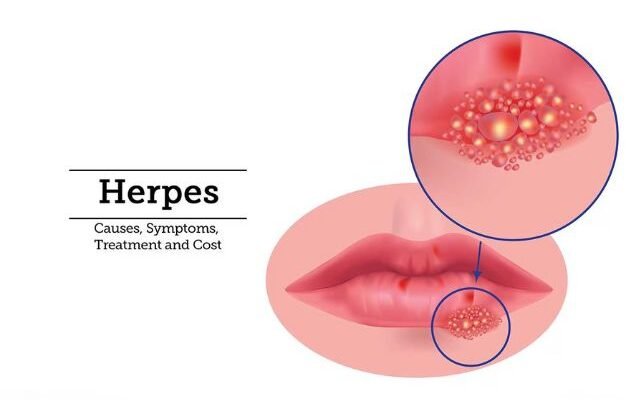Herpes sores, especially cold sores, can be painful and a source of embarrassment. However, you’re not alone. Many people worldwide face this issue. The good news is that there are ways to heal herpes sores faster. This guide is designed for health enthusiasts, those suffering from herpes, and members of the wellness community. By following these practical tips, you can alleviate discomfort and speed up the healing process.
Understanding Herpes Sores
Herpes sores, caused by the herpes simplex virus (HSV), manifest as blisters or ulcers on the skin. These sores are usually found around the mouth or the genital area. There are two types of HSV – HSV-1, which typically causes oral herpes, and HSV-2, which leads to genital herpes. Understanding the nature of these sores is the first step toward managing them effectively.
Herpes sores go through different stages, from a tingling sensation at the start to a blister formation, ulceration, and finally, healing. Knowing these stages helps in applying the right treatments at the right time. The duration and severity of outbreaks can vary depending on individual health and other factors.
Keep the Sores Clean
Maintaining cleanliness is crucial for faster healing. Gently clean the affected area with mild soap and water twice a day. Avoid using harsh chemicals or scrubbing the sores. Cleanliness prevents secondary infections, which can delay the healing process.
Use a soft, clean towel to pat the area dry. Avoid sharing towels or other personal items to prevent spreading the virus. Keeping the sores clean and dry creates an environment that promotes natural healing and reduces discomfort.
Use Topical Treatments
Topical treatments can significantly reduce the discomfort and duration of herpes sores. Over-the-counter creams like docosanol (Abreva) can be applied to the affected area. These creams work by preventing the virus from spreading and multiplying.
Prescription topical treatments, such as acyclovir cream, are also effective. These antiviral creams should be applied at the first sign of a sore, like a tingling or itching sensation, to maximize their effectiveness. Consistency in applying these treatments is key to faster healing.
Apply Cold Compresses
Cold compresses can help reduce inflammation, numb the pain, and speed up the healing process. Wrap some ice cubes in a clean cloth and apply it to the sore for 10-15 minutes several times a day. The cold temperature helps in minimizing swelling and discomfort.
Avoid placing ice directly on the skin, as it may cause frostbite or further irritation. After using a cold compress, it’s essential to keep the area dry to prevent additional irritation or secondary infections.
Avoid Touching or Picking at Sores
Touching or picking at herpes sores can spread the virus to other parts of your body or cause a secondary infection. It’s crucial to resist the urge to touch the sores. If you accidentally touch them, wash your hands immediately with soap and water.
Keeping your hands away from the sores also prevents the virus from spreading to other people. Using a lip balm or moisturizer can help reduce irritation and the temptation to touch or pick at the sores.
Stay Hydrated and Maintain a Healthy Diet
Hydration plays a vital role in the healing process. Drinking plenty of water helps your body flush out toxins and supports overall health. A well-hydrated body heals faster and more efficiently.
In addition to staying hydrated, maintaining a healthy diet rich in vitamins and minerals can boost your immune system. Foods high in lysine, an amino acid, can be particularly helpful. Examples include dairy products, chicken, and fish. Avoid foods high in arginine, such as nuts and chocolate, as they may trigger outbreaks.
Take Antiviral Medications
Antiviral medications are highly effective in managing herpes outbreaks. Prescription drugs like acyclovir, valacyclovir, and famciclovir can reduce the severity and duration of sores. These medications work best if taken at the first sign of an outbreak.
For those with frequent outbreaks, daily suppressive therapy with antiviral medications can reduce the frequency and severity of episodes. Always consult with a healthcare provider before starting any medication.
Practice Good Hygiene
Good hygiene practices are essential in managing herpes sores. Regularly washing your hands, especially after touching the sores, helps prevent the spread of the virus. Use hand sanitizers when soap and water are not available.
Avoid sharing personal items like toothbrushes, razors, or towels. Disinfect surfaces that may come into contact with the sores. Good hygiene not only promotes faster healing but also protects those around you from contracting the virus.
Manage Stress
Stress can trigger herpes outbreaks or worsen existing sores. Finding effective ways to manage stress is crucial in preventing and managing outbreaks. Practices such as yoga, meditation, deep breathing exercises, and regular physical activity can help reduce stress levels.
Ensuring a balanced lifestyle with adequate rest, healthy eating, and relaxation can significantly impact your overall well-being. By managing stress, you support your body’s ability to heal and reduce the likelihood of future outbreaks.
Get Plenty of Rest
Rest is a fundamental aspect of the healing process. When your body is well-rested, it has more energy to fight off infections and heal sores. Aim for at least 7-9 hours of sleep per night. Quality sleep improves your immune system, enabling your body to handle the herpes virus more effectively.
Create a relaxing bedtime routine to ensure you get restful sleep. Avoid caffeine and electronic devices before bed. A well-rested body is better equipped to heal and manage herpes sores.
Consult a Healthcare Provider
While home remedies and over-the-counter treatments can be effective, consulting a healthcare provider is essential for proper management of herpes sores. A healthcare provider can prescribe antiviral medications and provide personalized advice based on your condition.
Regular check-ups and open communication with your healthcare provider ensure that you’re using the most effective strategies for managing herpes outbreaks. Professional guidance is crucial for long-term management and overall health.
Conclusion
Managing herpes sores can be challenging, but with the right approach, you can speed up the healing process and minimize discomfort. By keeping the sores clean, using topical treatments, staying hydrated, and practicing good hygiene, you can take control of your health. Don’t forget the importance of managing stress, getting enough rest, and consulting healthcare professionals.
For those seeking more personalized advice, consider scheduling a consultation with a healthcare provider. By taking proactive steps, you can live comfortably and confidently despite having herpes. Explore our website for more tips and resources on managing herpes and other health conditions.
Read also : The Rise of Brain Fungus: What You Need to Know




